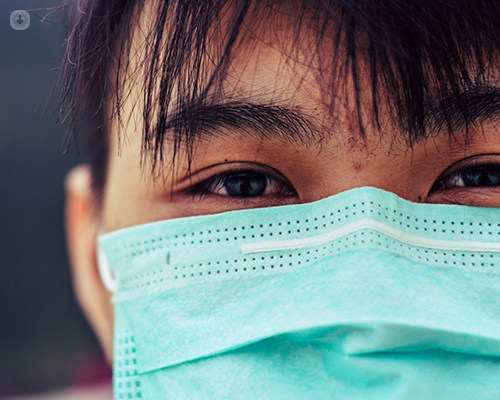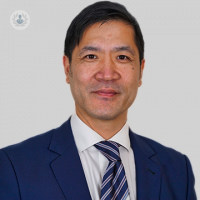COVID and surgery: How you’ll be prepared and your safety prioritised
Written by:There are many questions patients have before surgery, and even more questions now that COVID has affected the way hospitals and surgical procedures are planned and safely ran. Mr Cheuk Bong Tang is on hand to explain how to prepare for surgery and explains what hospitals are doing to ensure patient safety.

When will I be tested for the virus before surgery?
To ensure that a scheduled operation is as safe as possible, preparation begins three weeks before the operative date.
You will be asked by the pre-op team if you are currently symptomatic or have been in contact with someone that has tested positive for the coronavirus COVID-19 within the last two weeks. If not, you will undergo a nasal swab test (to test for current infection) and if the result is negative and you don’t have the virus, you are brought into the hospital for pre-operative investigations. The results may take up to three days to come back.
You must then self-isolate at home for two weeks, only going out for shopping and avoiding visitors.
Within 72 hours of your operative date, a second nasal swab is performed and only if this is negative will you proceed with your operation.
Can I talk to my surgeon before the operation?
As all health institutions are reducing face-to-face interactions, you can arrange a phone consultation or where the facilities exist, a secure webcam consultation with your consultant, such as via e-Consultation, the Top Doctors secure and encrypted service, which I’m available on.
They can answer any concerns or questions you have about how the hospital is reducing the risks of catching COVID during your hospital stay, and what to expect when you enter the hospital.
What can I expect during my hospital stay?
On entering the hospital:
- You will be met by a nurse who will ask you questions about symptoms.
- Your temperature will be taken.
- You will be handed a mask that you must wear all the times whilst in the hospital.
- Medical staff will ask you to clean your hands with alcohol rub.
- You will be directed around a one-way system to your destination.
- They will explain that no visits are allowed.
Should I take specific steps to improve my overall health for the procedure?
I should stress that as COVID primarily affects the lungs, you should try and improve your overall lung health. This involves increasing cardiovascular exercise and stopping smoking for at least two weeks before your operation.
How is safety maintained in theatre?
- The operation will take place in green pathways, which means in areas completely free of COVID. All staff must remain in the green area and are not allowed to mix with staff from other areas.
- All staff in theatre wear full PPE during operations.
- Laparoscopic procedures will take place with closed system filtration or laparoscopic port filtre (if available).
- Theatres have positive pressure laminar flow and are intensively cleaned between cases.
- In the theatre room, 20 minutes is left between cases.
Do you still have questions and/or would like to speak with Mr Tang about undergoing a surgical procedure? You can contact him and learn more about his services by visiting his profile.


